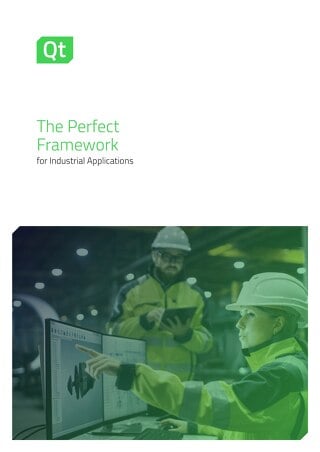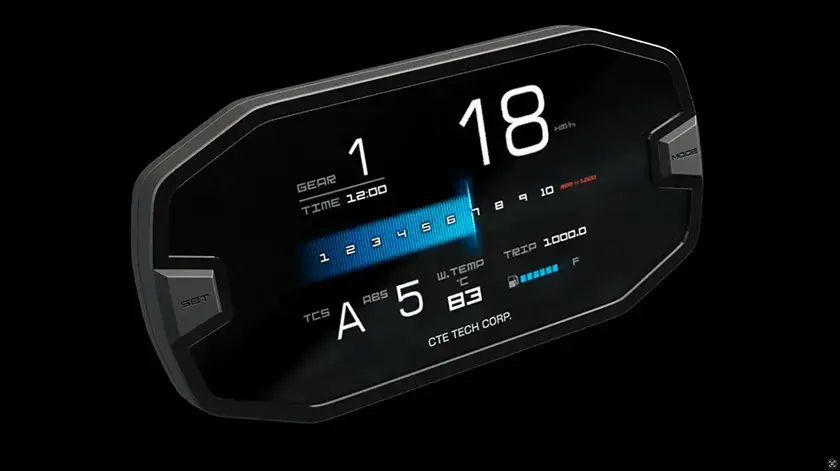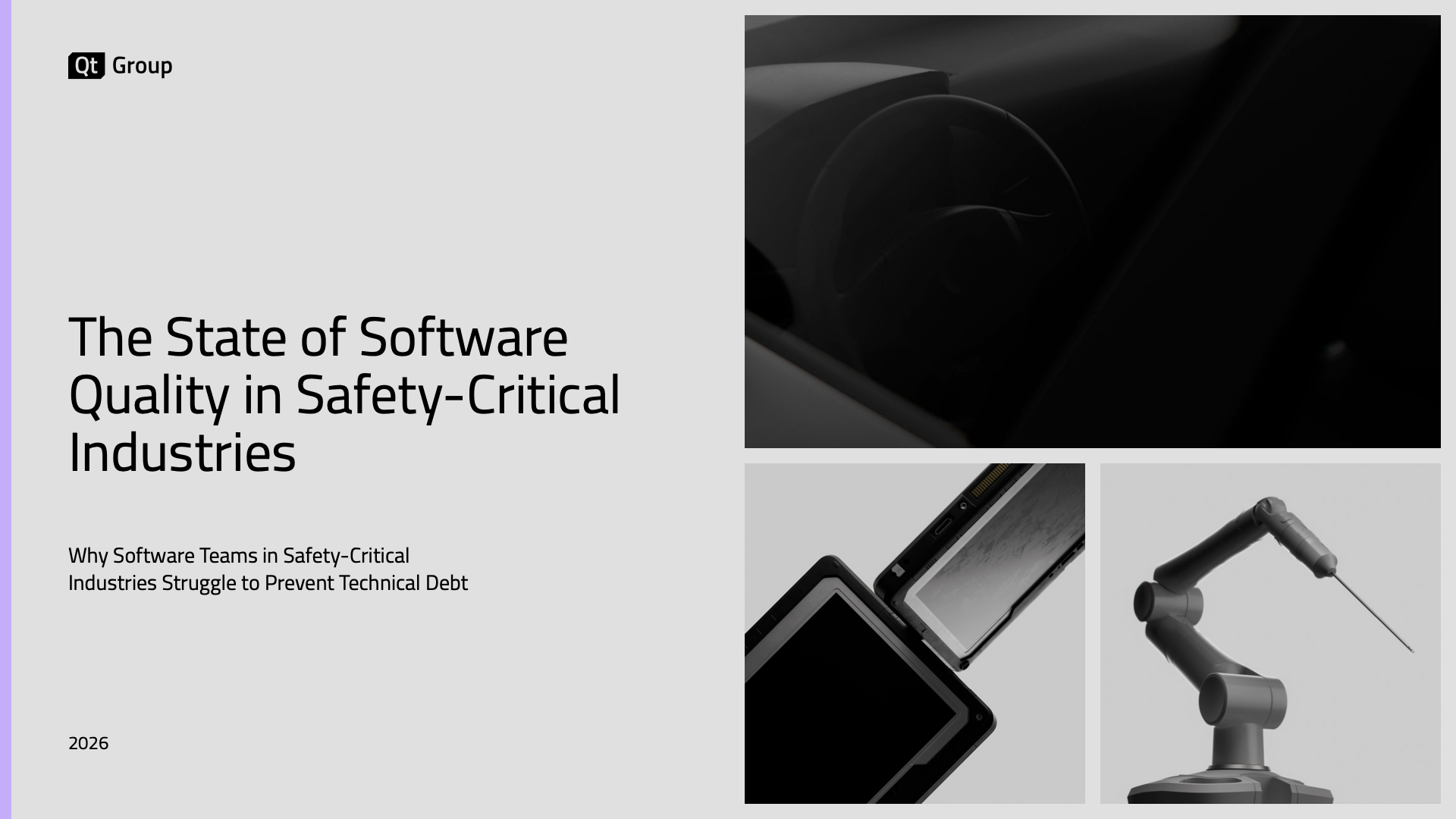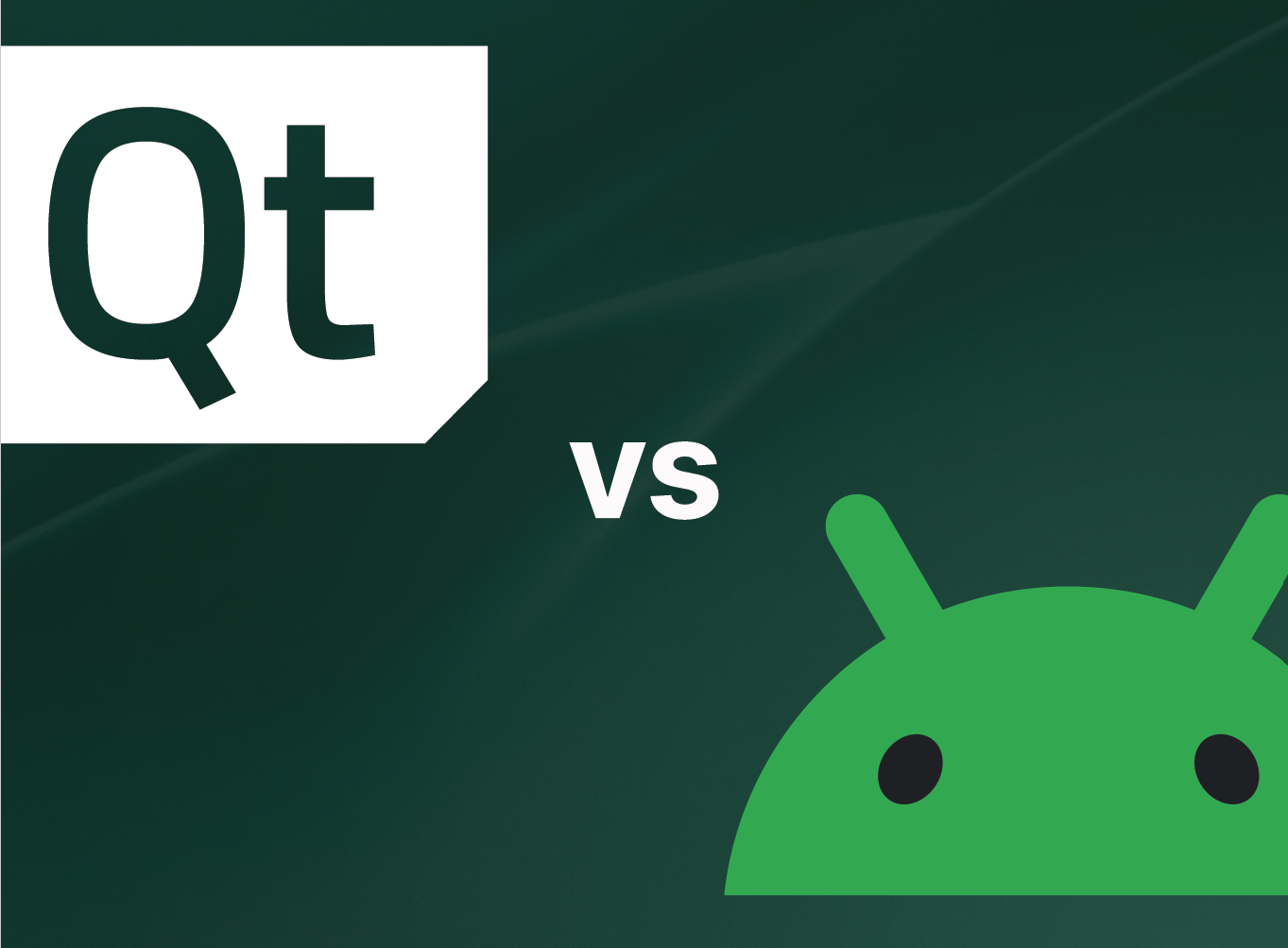
White Paper: The Perfect Framework for Industrial Applications
Requirements for the industrial market now include streamlined design workflows, multiple target deployments, remote browser accessibility, connectivity through new protocols, and many other demands. Qt has become a strong framework for creating industrial applications and is one of the most dependable choices in this segment. For nearly two decades, manufacturers have consistently depended on Qt to produce increasingly complex systems that maximize production uptime and product reliability. These are all areas where Qt continues to excel and, with every new release of the framework, new capabilities are added to address industrial concerns.
Discover the latest trends in the industrial market and why Qt helps companies tackle those trends through real-life use cases that meet business goals.
Topics include:
- How to produce increasingly complex systems
- Maximize production uptime
- Increase product reliability with software
After you finish this eBook, you may want to read our eBook entitled, “The Nuts and Bolts of Qt Industrial Applications” if you’re interested in more specifics about how Qt solves industrial challenges,
Get Document
Oh, here is more
Expert Insights: GUI Testing Best Practices for Qt-Built Interfaces
Many Qt teams initially rely on manual testing or general-purpose open-source tools such as Selenium...
Get DocumentExpert Insights: Are You Overpaying for GUI/UI Testing?
The Real Cost of GUI Testing Testing tools and frameworks are often chosen with good intentions: the...
Get DocumentWhitepaper: The State of Software Quality in Safety-Critical Industries
48% of engineering leaders in safety-critical industries say architectural drift is a primary driver...
Get DocumentQt vs Android - Ultimate comparison of Qt & Linux vs Kotlin & Android stacks
This study by Somco Software aims to offer a practical, unbiased perspective on how Qt and Kotlin pe...
Get Document


